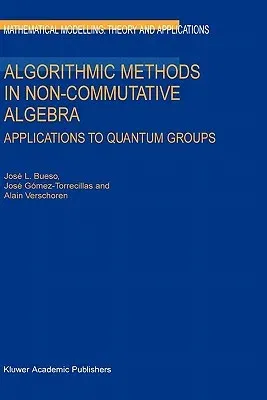J L Bueso
(Author)Algorithmic Methods in Non-Commutative Algebra: Applications to Quantum Groups (2003)Hardcover - 2003, 31 July 2003

Qty
1
Turbo
Ships in 2 - 3 days
In Stock
Free Delivery
Cash on Delivery
15 Days
Free Returns
Secure Checkout

Part of Series
Mathematical Modelling: Theory and Applications
Part of Series
Mathematical Modelling--Theory and Applications
Part of Series
Mathematical Modelling: Theory & Applications
Part of Series
Mathematical Modelling: Theory & Applications Mathematical M
Print Length
300 pages
Language
English
Publisher
Springer
Date Published
31 Jul 2003
ISBN-10
1402014023
ISBN-13
9781402014024
Description
Product Details
Book Edition:
2003
Book Format:
Hardcover
Country of Origin:
US
Date Published:
31 July 2003
Dimensions:
23.88 x
16.26 x
2.03 cm
ISBN-10:
1402014023
ISBN-13:
9781402014024
Language:
English
Location:
Dordrecht
Pages:
300
Publisher:
Series:
Weight:
612.35 gm